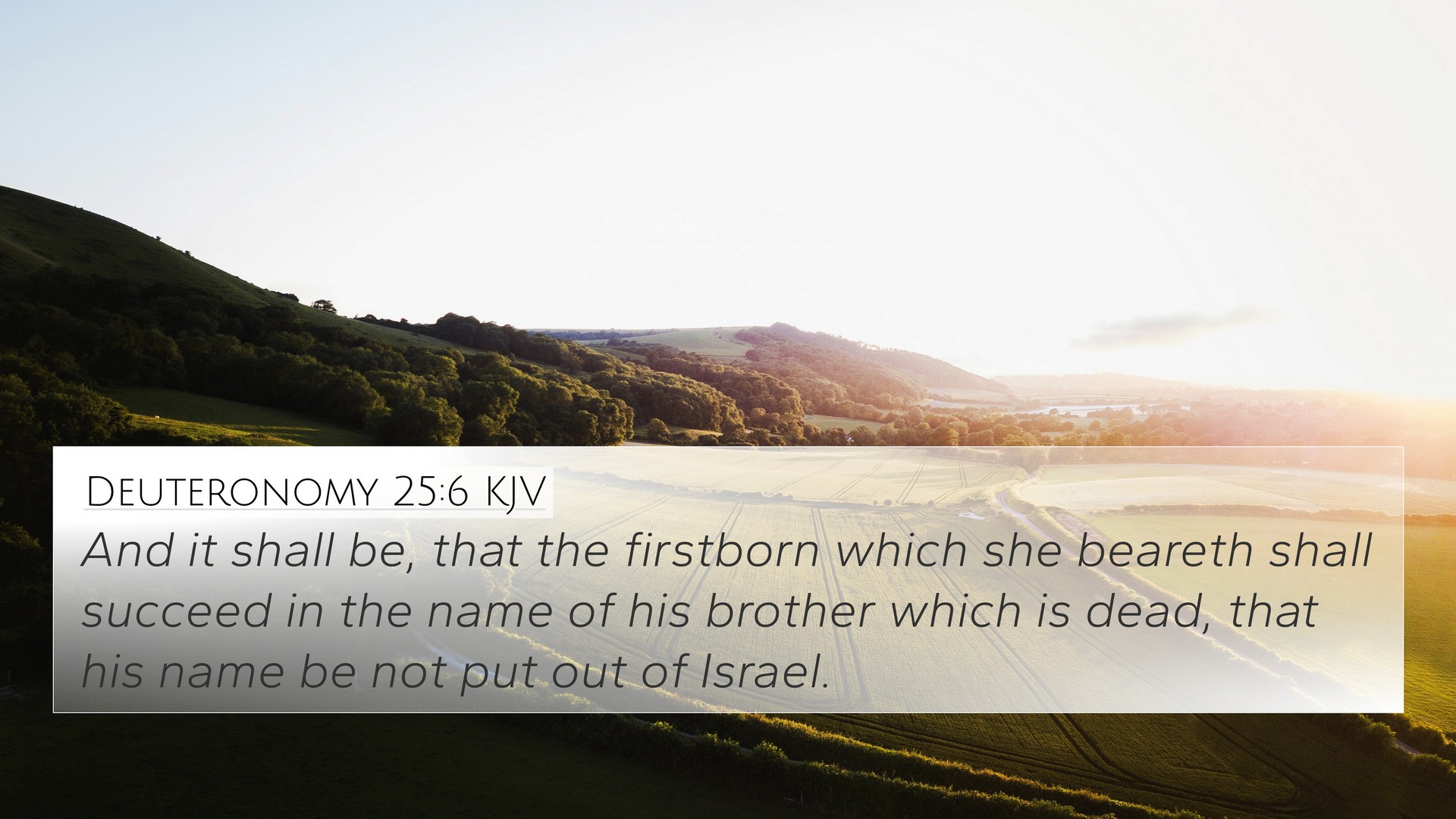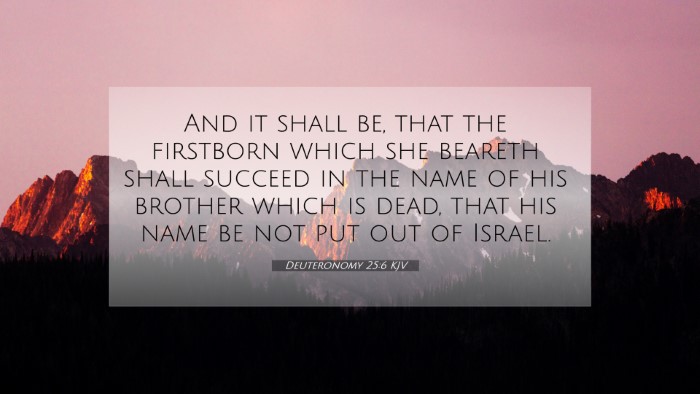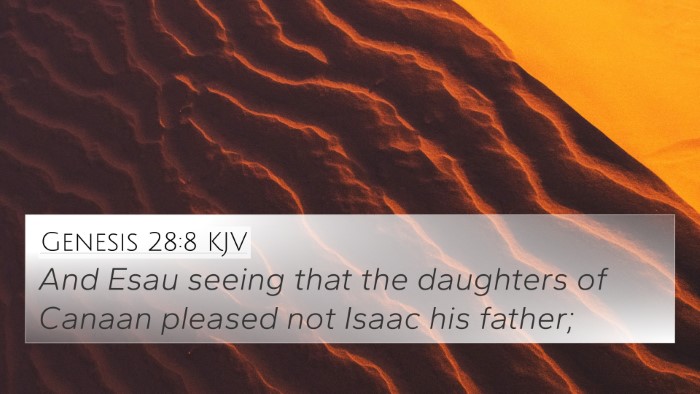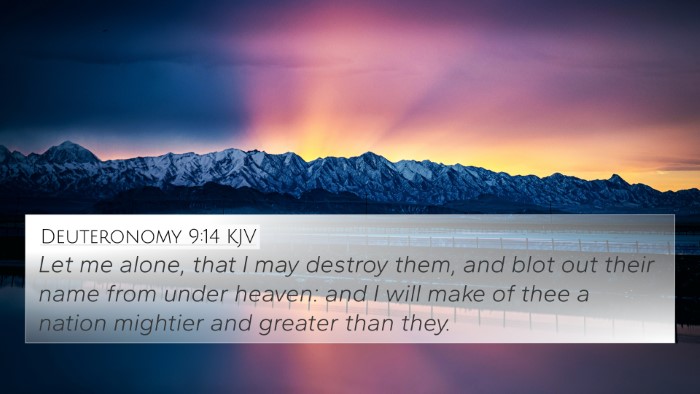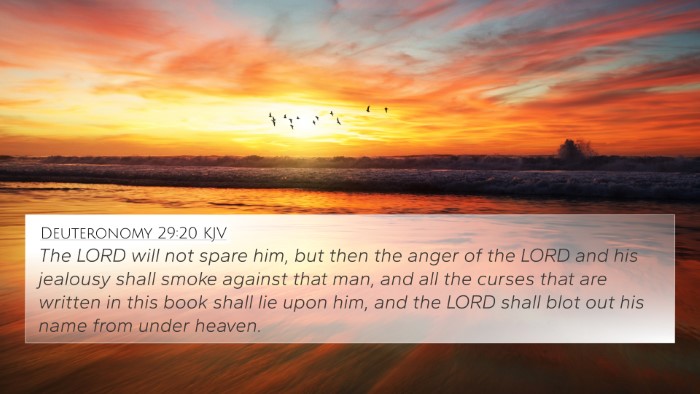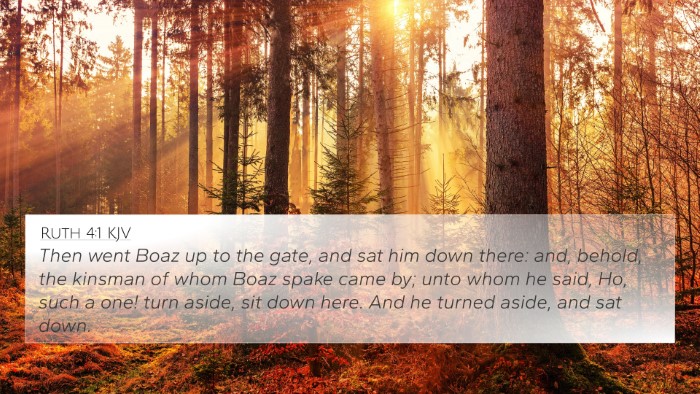Understanding Deuteronomy 25:6
Deuteronomy 25:6 states: "And it shall be, that the firstborn which she beareth shall succeed in the name of his brother which is dead, that his name be not put out of Israel." This verse addresses the principle of Levirate marriage, which was pivotal in the context of ancient Israelite society.
Meaning and Context
This passage reflects God's concern for family lineage and inheritance among the Israelites. When a man died childless, his brother was obliged to marry the widow to produce an heir in the deceased brother's name, thus preserving his lineage. The meaning of this verse can be unpacked through various commentaries:
- Matthew Henry: Henry emphasizes the importance of family and heritage in the Israelite community. He notes that this law safeguards the deceased's name and prevents it from being forgotten.
- Albert Barnes: Barnes interprets this directive as a reflection of God’s desire to ensure that every family has a memorable legacy. He highlights that this practice was intended to maintain the social and spiritual fabric of Israel.
- Adam Clarke: Clarke sheds light on the cultural implications of the practice, discussing how it served not only to fill the family line but also to provide social security for widows.
Cross-References and Thematic Connections
This verse has profound connections to other scripture passages. Here are some notable cross-references:
- Genesis 38:8-10: This story of Judah and Tamar illustrates the practice of preserving a brother's lineage through marriage.
- Ruth 4:1-10: The story of Ruth and Boaz directly demonstrates the principles of Levirate marriage and its importance in Israel.
- Matthew 22:24: This verse from the New Testament references the Levirate law in the context of a questioning about resurrection, illustrating its lasting significance.
- Deuteronomy 25:5: The preceding verse sets the stage for understanding the importance of sibling duties in preserving family members' names.
- 1 Chronicles 2:4-15: Genealogies reflect the significance of lineage and the names of families within Israel.
- Hebrews 7:14: This verse mentions Jesus' lineage from Judah, further emphasizing the importance of family lines.
- 2 Samuel 3:5: Shows the implications of royal lineage, connected to the cultivations of names and heritage in Israel.
- Jeremiah 22:30: Highlights the consequences of failing to uphold familial responsibilities, underscoring the significance of keeping a name alive.
Applications and Reflections
This commandment can lead to various reflections on community responsibilities and familial duty. Although the direct practice of Levirate marriage is not applicable in modern contexts, the principles of caring for family and ensuring that one's lineage contributes to the community remain relevant.
In addition, the concept of preserving a name can shift to values like legacy, memory, and the impact of one’s actions on future generations. These reflections encourage believers to consider how they honor their families and contribute to their communities.
Inter-Biblical Dialogue
The connections between this Old Testament law and New Testament teachings are significant. By examining the thematic continuities across Scripture, believers can gain a richer understanding of God's design for human relationships and responsibilities.
For instance, the principle of self-sacrifice for family is echoed in the teachings of Jesus and the apostles, illustrating God's unchanging intention for relationships throughout the ages.
Conclusion
Through comprehensive Bible cross-reference techniques, believers can uncover the depth of Scripture and its interconnectedness. By studying verses like Deuteronomy 25:6, we see how God's laws reflect deep moral and social principles that resonate through time and across the biblical narrative.
